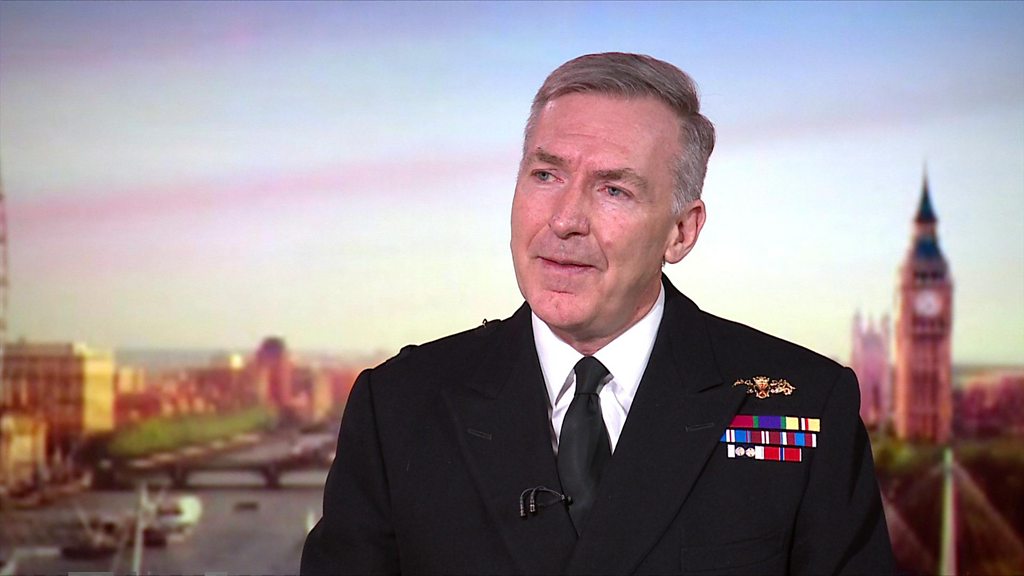Russia suffers worst month for casualties, says UK defence chief
3 min read
Russia has experienced its deadliest month in the war with Ukraine, suffering the highest number of casualties since the conflict began in February 2022, according to the UK’s Chief of Defence Staff, Admiral Sir Tony Radakin. In an interview with the BBC, Radakin revealed that Russia’s forces were losing an average of 1,500 soldiers—dead and wounded—every day during October, bringing the total number of Russian casualties to an estimated 700,000.
While Russia has not officially released figures for its war dead, Western defence officials have confirmed that October’s death toll was the heaviest to date. Radakin emphasized that the loss of life and the suffering inflicted on the Russian people were “extraordinary,” especially given that these casualties were for only “tiny increments of land” in Ukraine.
Radakin explained that while Russia is making some tactical gains on the battlefield, these advances are costly. “There is no doubt that Russia is making territorial gains and putting pressure on Ukraine,” he said. However, the price of these victories has been steep, with Russia now spending more than 40% of its national budget on defense and security. Radakin described this as an “enormous drain” on the country’s resources, a burden that Russia is unlikely to sustain for long without severe consequences.
The UK defence chief’s comments come amid ongoing international debate over how the conflict should end. Some allies of US President-elect Donald Trump have suggested that Ukrainian President Volodymyr Zelensky might have to cede some of Ukraine’s occupied territory to bring about peace. However, Radakin reiterated that Western allies, including the UK, would remain steadfast in their support of Ukraine for “as long as it takes.” He added that this was the message President Vladimir Putin needed to understand, offering reassurance to President Zelensky and Ukraine’s allies.
Trump, who has been critical of continued US military and financial aid to Ukraine, has long stated that his priority is to bring an end to the war, though he has not outlined a clear strategy for achieving this. He has suggested that a negotiated settlement may involve some compromises from Ukraine, but has yet to provide specifics. The comments from his campaign advisor, Bryan Lanza, that the incoming administration would focus on peace rather than military victories, have stirred controversy. Lanza argued that if Zelensky insists on reclaiming Crimea from Russia, it would be a sign that he is “not serious” about peace. Lanza’s statement, however, was quickly clarified by a spokesperson for Trump, who emphasized that Lanza did not speak for the president-elect.
Zelensky has remained resolute in his stance, recently presenting a “victory plan” to the Ukrainian parliament that rejects any ceding of territory or sovereignty to Russia. The Kremlin dismissed this plan, with a spokesperson for Putin claiming that Kyiv needed to “sober up” and face the reality of Russia’s territorial claims.
This geopolitical deadlock has led to increasing tensions within international diplomacy circles. Trump’s Democratic opponents have accused him of aligning too closely with Putin, warning that his approach to ending the war could amount to surrender for Ukraine and undermine European security. Estonian Prime Minister Kristen Michal, in an interview with the BBC, warned that if Ukraine were to back down, it would embolden Russia to expand further. “If you start giving up, then you should be prepared to give more,” she said, cautioning against appeasing Russia’s territorial ambitions.
On the battlefield, the war continues to exact a devastating toll, both in human lives and resources. The conflict has entered a critical phase, with each side pushing for more support and strategizing for long-term victories. Despite the heavy losses, Radakin’s comments underscore the UK’s commitment to standing by Ukraine, no matter the duration of the conflict.
As both the US and European allies evaluate their positions, the situation remains fluid. The international community is closely watching how the incoming US administration, under Trump’s leadership, will navigate this complicated geopolitical crisis. With tensions running high and both sides entrenched in their positions, the question of how the war will ultimately end remains uncertain.








